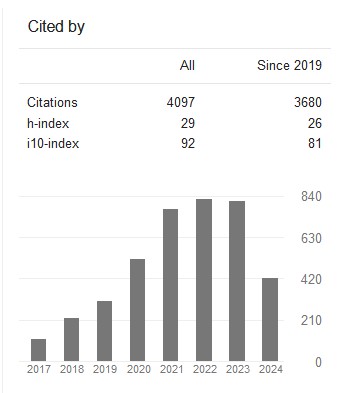The Effectiveness of Students’ Worksheet of Virtual Laboratory Practice on Dynamic Electricity to Improve Science Process Skill( Vol-4,Issue-4,April - April 2018 ) |
|
Author(s): Zulimah, Abdurrahman, Tri Jalmo |
|
Keywords: |
|
|
Science process skill, simulations PhET media, practice worksheet, virtual laboratory. |
|
Abstract: |
|
|
The purpose of this research is to produce virtual laboratory practicum students’ worksheet using PhETsimulations media, which is attractive, useful, and effective to improve students’ science process skill. From the potency and problemsgained from the analysis of Physics teachers’ responses of Senior High Schools in Lampung Province, Indonesia, 40% of Senior High Schools have laboratory equipment and facilities for real practicum and 80% of Physics teachers need students’ worksheet despite in the virtual laboratory forms. Based on the students’ need analysis, 100%students need practicum activities. The data collecting technique used wasassessment sheet of material and media experts and questionnaires of attractiveness and usefulness of students’ worksheets. The test involved 68 State and Private Senior High School Students inLampung Province, Indonesia. It was obtained that the means of pre-test result = 55 and 44, and post-test result = 89 and 82. The usefulness and attractivenesswere (86,4%) attractive, (84,7%) useful, and effectiveness with N-Gain (g) 0.80 and 0.75. It is considered high classification to improve students’ learning achievement. The effectiveness level in improving science process skill is measured from practicum activity score, hypotheses proposal, experiments, data collecting, and conclusion drawing. The means of N-Gain (g) = 0.7, and it is considered high and effective. At the end of the practicum activity, there was a cognitive assessment of the comprehension test results of dynamic electricity concept from both schools. The means score were 89.33 and 86.67, which means that the scores have fulfilledthe minimum criteria of mastery learning (75). |
|
Cite This Article: |
|
| Show All (MLA | APA | Chicago | Harvard | IEEE | Bibtex) | |
Share: |
|

 DOI:
DOI: 



























